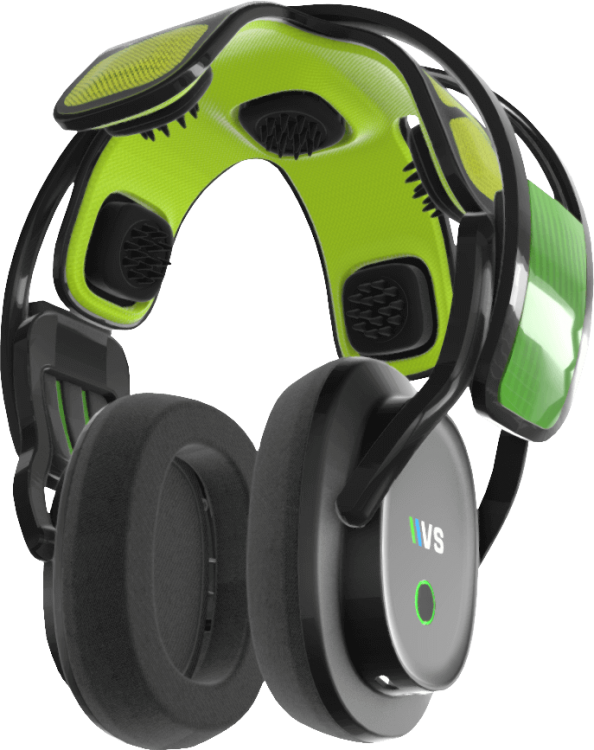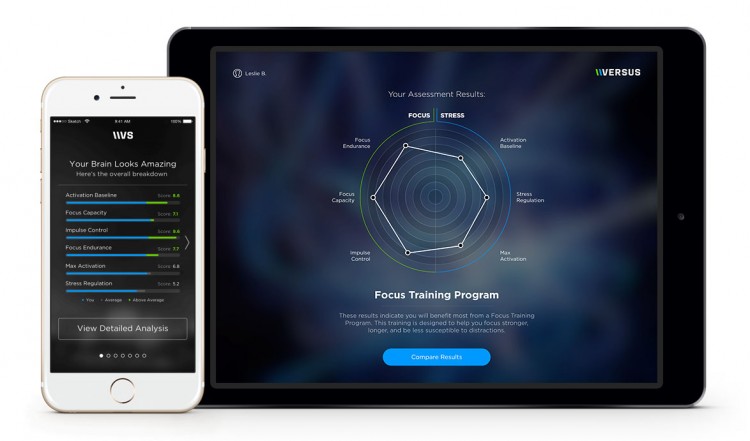Like anyone might, I sometimes find myself in situations where I feel stressed, overwhelmed, unsure, or unmotivated. What if there was a way to train our brains to be more responsive, alert, and stress-free? What if there was a way to ensure that we performed at peak levels? Wouldn’t you jump on it? I’m pretty sure that I would!
SenseLabs is on a mission to build better brains, and Versus is the product they propose to do it with.
Versus trains your brain to perform its best, so you perform at yours. Whether you need to increase focus, improve impulse control, or respond quickly & accurately under stress, Versus trains your brain to do it.
Versus is basically a combination of apps that work on your iPhone or iPad and a headset that records your brain activity in real-time. Versus trains for things like impulse control and remaining calm under pressure, and it will prescribe a training plan “based on your needs, as determined by the NeuroPerformance Assessment.”
The human brain has the ability to learn new responses to external situations – this is known as neuroregulation. The brain is comprised of billions of neurons and signals travel between these neurons through elaborate neural pathways. The efficiency of these pathways determines your ability to process information, control impulses, react quickly, and much more. Neuroregulation allows the brain to regulate, strengthen, and even create new neural pathways. Our unique Versus algorithm trains the effects of neuroregulation and improves the efficiency of neural pathways shown to be critical in enhancing performance.
When you first begin, you have to do a NeuroPerformance Assessment to “assess brain performance, develop training recommendations, and create a benchmark for improvement.” The idea is that there needs to be a baseline so that you can “reliably quantify your mental performance, but you can also track improvement over time.”
Versus rewards you when you enter the optimal brain state. This is known as operant conditioning. When your brain expresses this state, you are rewarded with progress in a video game. When the car moves, you know you’re doing the right thing, and you learn to reproduce that desired brain activity. Repetitious training consistently pushes your brain activity into a stronger position.
Classical conditioning puts this training into action. For example: staying focused at the free throw line. Having learned how to create the ideal brain state for focus, you can now create that state on the court. You now have the control to recreate the optimal brain state, and through the process of classical conditioning, your brain is trained to enter that state naturally.
The Versus headset is $399.99, and you have to purchase a subscription along with it; subscriptions run $19.95 per month ($199.95 annually) for an individual, $49.95 per month ($495.95 annually) for a family (up to four users), and $99.95 per month ($995.95 annually) for up to 10 co-workers. It seems really expensive, but if it works it’s a small price to pay … right?
The biggest downside that I can see — and it is one that will be especially true for people who tend to already be overextended time-wise — is that on top of the time that you already take to (hopefully) work out each day, you’ll also need to set aside time to wear the headset and work through the Versus apps.
You can learn more and check out Versus here.


